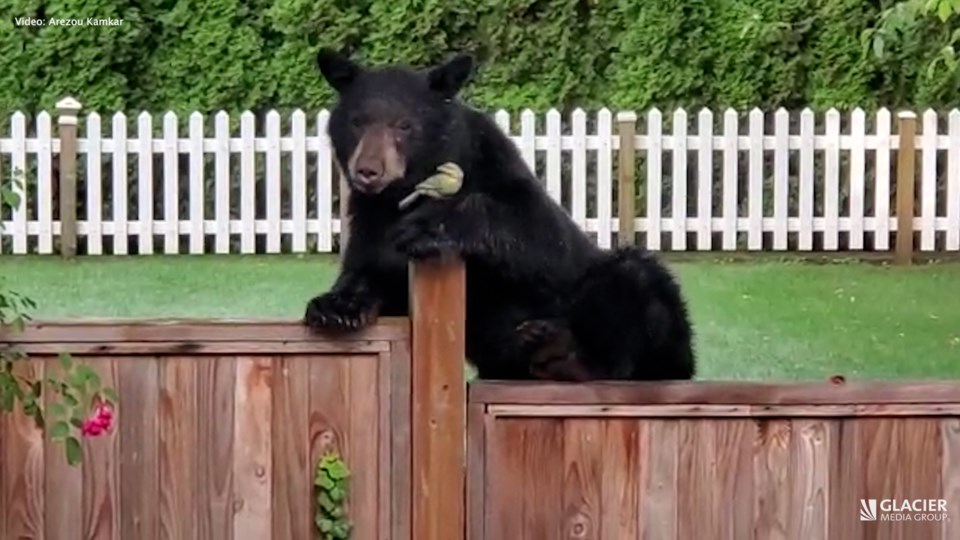As bears start to wake up and other wildlife peek out this spring, Coquitlam Mounties are reminding residents to be alert and to lock up their garbage.
The detachment is advising homeowners and tenants to secure their trash and not to put out compost, recycling or garbage bins until collection day.
As well, RCMP is asking the public not to feed wild animals as they’ll become habituated and will return for more — placing danger in neighbourhoods.
As of June 2024, anyone found feeding wildlife (e.g., bears, cougars, coyotes and wolves) will face a fine of up to $575 under the B.C. Wildlife Act.
Last August, some residents on Coquitlam’s Burke Mountain gave watermelon and other food to an injured bear; the bruin was later destroyed.
“It’s always a treat to see a bear family wandering along a community tree line or a group of deer nibbling on your neighbour’s petunias,” said A/Sgt. John Graham in a news release from the Coquitlam RCMP. “However, getting too close to these majestic creatures can be dangerous for several reasons. Please enjoy their presence from a safe and respectful distance.”
Jenny Tough, Coquitlam’s manager of environmental education and enforcement, said the city has already fielded several reports of bears this year.
According to B.C.'s Conservation Officer Service, there have been 60 calls so far this year (no bears were dispatched or euthanized):
- 29 in Coquitlam
- 23 in Port Moody
- eight in Port Coquitlam
The springtime is when female bears are teaching their cubs how and where to hunt for food; skunk cabbage is a favourite at this time of the year, Tough said.
Bears prefer natural sources; however, if garbage is easier to get at, they’ll head for the trash or organics cans that are out for pickup.
“Bears have been seen across the city from north to south and are most common in neighbourhoods adjacent to natural areas including parks and ravines,” she told the Tri-City News. “Bear activity is not confined to any day or time but in some cases may have been linked to garbage collection day.”
To report an aggressive bear or a human–wildlife conflict, call B.C.’s Conservation Officer Service 24-hour hotline at 1-877-952-7277.



